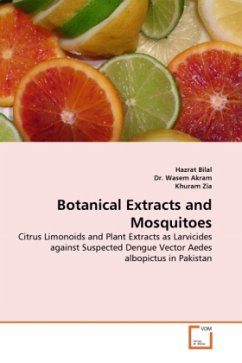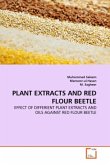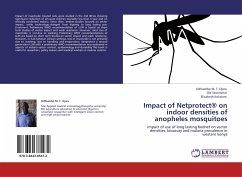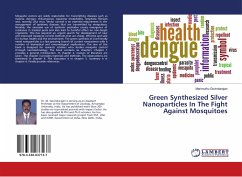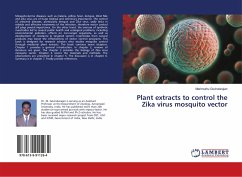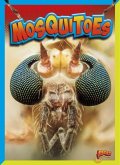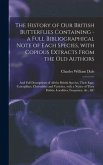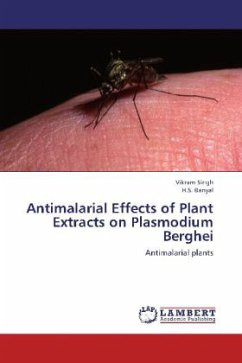The Research presented in this book was conducted in the Bio systematic laboratory in the Department of Agri. Entomology, University of Agriculture Faisalabad. Collection of Aedes albopictues was done on weekly basis from the botanical gardan of the University and from different localities of Faisalabad by placing tires, collected mosquitoes were rearded in the insectry. Fifteen plants and Thirteen citrus cultivars were used as larvicide. Soxhelt apparatus was used for extraction of oil by using different plant parts. Ether was used as solvent, 30 late 3rd and early 4th instar larvae were exposed at different concentrations. Lemon seed, red blood orange seed and rough lemon seed extracts were considered as best in terms of LC50, LC90, LT50 and percent mortalities when compared with other plant extracts.
Bitte wählen Sie Ihr Anliegen aus.
Rechnungen
Retourenschein anfordern
Bestellstatus
Storno

